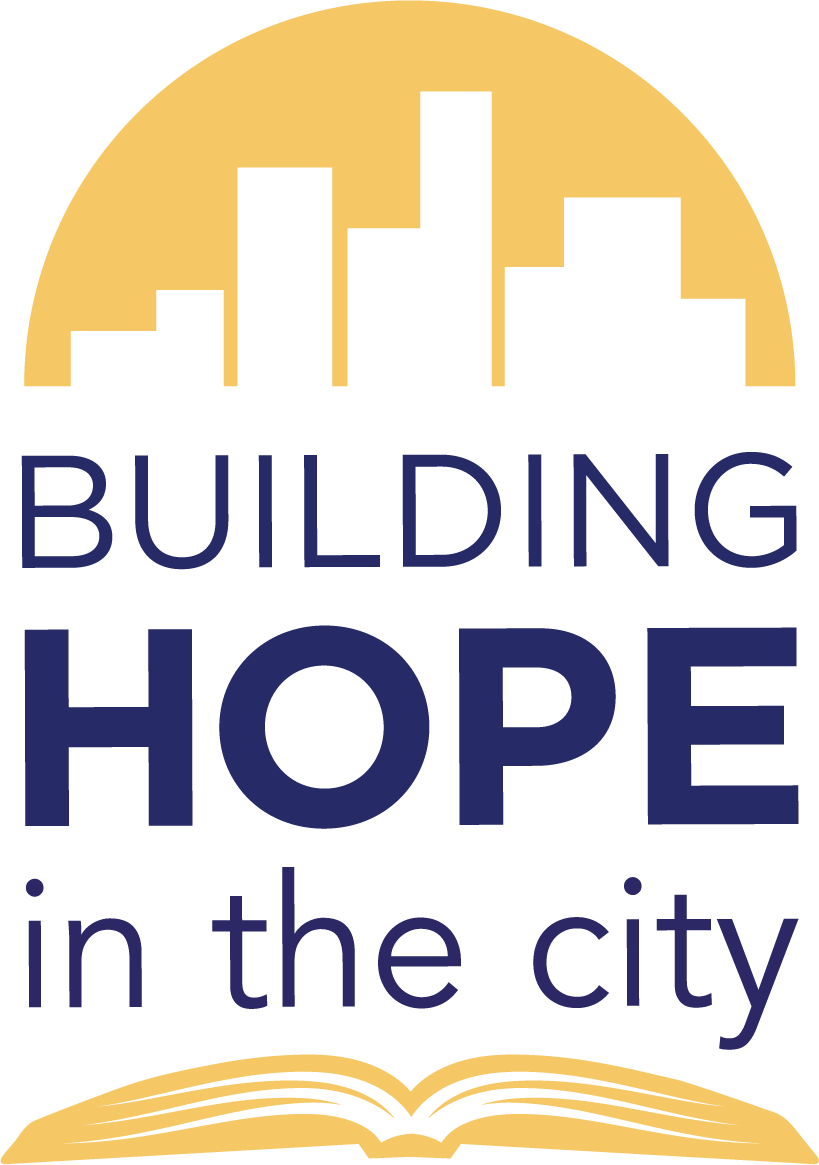Rising Together
BUILDING CAREGIVING CAREERS WITH STUDENTS AT THE HOPE CENTER
Every Tuesday and Thursday, a classroom at The Hope Center facilitates new beginnings in healthcare. There, refugee and immigrant students gather for the Caregiving Workforce Development class. This three-month training program prepares participants to become certified Direct Support Professionals (DSPs) in Ohio.
The program is a collaboration with Rising Heights, a nonprofit that provides affordable integrated housing and care for neurodiverse individuals and their families. Designed specifically for newcomers who are building their lives in the U.S., the class equips students with the skills and credentials needed to work as personal homecare aides for adults or children with disabilities.
“Rising Heights chose to work with The Hope Center as we believe that refugees have character traits that are not easily found in other traditional workforce groups,” said Natalie Leek, Rising Heights Board President. “Refugees, through often hard personal experiences, have cultivated and brought deeper empathy and resilience. These are critical traits when providing care to persons with developmental and physical disabilities.” These qualities are especially valuable in an industry facing widespread staffing shortages. As Natalie explained, “Caregiving jobs experience very high turnover rates for many reasons. A lack of comprehensive training, mentoring, and opportunities for advancement are among them. Our combined Refugee Caregiver training program is designed by experts from various disciplines and provides support in all of these areas often lacking in traditional training programs.”
Many of the students bring extensive healthcare experience from their home countries, but lack the licensing or credentials to continue in the same field in the U.S. Mohammad Hashim Halim, a student in the program, worked in pharmacy in Afghanistan for over 20 years. “In my village, there was no doctor,” he explained. “So in my store, I would take blood pressure, give injections—things a doctor in the U.S. would do.” He sees this program as a way to serve again. “When I work with people, I like to share positivity and happiness. In Afghanistan I had one patient who was 100 years old and could not move. I started treating her and said, ‘You are good.’ Then, she became very strong.”
Through a combination of self-paced online coursework, in-person practical training, and job readiness coaching, this program helps students re-enter the healthcare workforce with dignity and purpose. Each student earns American Red Cross First Aid certification and receives hands-on instruction from professionals on how to administer injections, sort medications, and safely use essential equipment such as lifts, wheelchairs, and transfer belts. Recognizing that English language skills vary, the training is structured to emphasize visual and tactile learning. This makes the information more accessible and memorable for students. At the end of the course, Rising Heights will place students in clinical rotations with families whose children have physical or intellectual disabilities, giving them real-world exposure to the kind of meaningful caregiving work they will soon be able to pursue as a career.



Josh Kontur, who teaches the class, is a longtime volunteer at The Hope Center and has a background in physical therapy. He’s continually inspired by his students. “I’ve been impressed seeing how engaged the class is even though for many of these students, this training is below their degree,” he said. “Many students already take initiative in helping each other out which shows how great they will be as caregivers.”
The relationships forming in the classroom speak to the program’s deeper impact. Parwana Rajabi, who worked in pediatric nursing for 8 years, said, “I enjoyed caring for kids and I want to continue in health care. I want to care for people.” Another student, Zohra Sediqi Haseem, once worked in the same Afghan hospital as Parwana. Reunited in The Hope Center classroom, they are now preparing for a new chapter of service in Cleveland.
In a field facing workforce shortages, the students of this program stand out not only for their skills, but for their deep compassion and resilience. Through Rising Heights and The Hope Center, these individuals are finding a way back to the work they love, stepping forward with purpose and heart.



